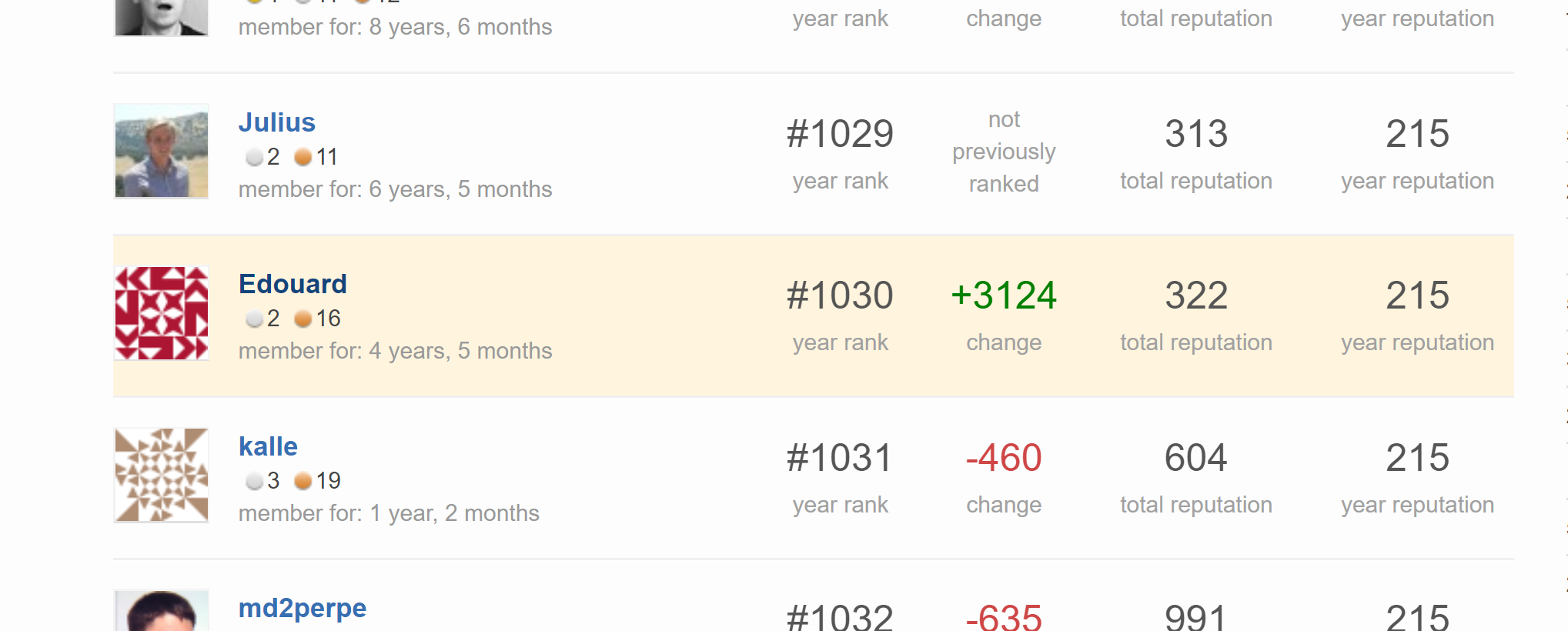My standing on the Physics Stack Exchange went from "top 16% overall" to "top 67% overall" during a period when I posted only one question or answer (a question posted Jan.5, 2020, MST), plus a few comments. The question has received 0 votes so far, and I hadn't noticed any up-votes on the comments I've re-checked.
I understand that the user names can be duplicated, although mine, with the French-language spelling "Edouard", doesn't currently have any duplicates in PSE.
Given my lack of any formal training in college-level physics and a knowledge of it that's been gained almost entirely through a combination of direct observations with my reading of popularizations by well-known physicists (plus a few biographical and philosophical texts reviewing their activities, and some online visits to other physics-oriented websites), I'm imagining my "top 67%" standing, among other users of PSE, to be much the more realistic among the two possibilities I've seen mentioned, but, as the most classic of "idiots savants", I'm curious as to whether the disparity (which has caused me no inconvenience or serious embarrassment) occurred accidentally or experimentally.
I have not changed my biographical information, which mentions one or two of my naive observations. Of course, I'll be disregarding my position in the top-to-bottom range, unless an error is disclosed to me.


